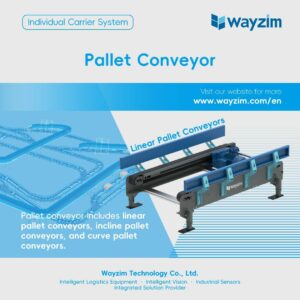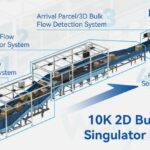Introduction to Automatic Conveyor Systems
In the realm of industrial automation, automatic conveyor systems have become indispensable in streamlining operations and enhancing efficiency. These systems, designed to transport materials from one point to another in a factory or production environment, not only save time but also significantly reduce labor costs. Whether you’re looking to upgrade your existing setup or are new to the concept of automated transport, understanding how an automatic conveyor can benefit your operation is crucial.
The Role of Automatic Conveyors in Modern Industries
Automatic conveyors are more than just components of large-scale manufacturing processes. They are the backbone of many industries, facilitating the smooth transition of goods across different stages of production, packaging, and distribution. With advancements in technology, the capabilities of these conveyors have expanded, making them a key player in the push towards fully automated operations.
Types of Automatic Conveyor Systems
There are several types of conveyor systems available, each suited to different industrial needs:
Belt Conveyor Systems
The automatic conveyor belt system is among the most common setups found in industries. It consists of a continuous belt made from various materials, which is moved by pulleys and motors. The simplicity and effectiveness of belt conveyors make them ideal for transporting both bulk materials and individual
products.
Roller Conveyors
For items that need quick and easy transportation over short distances, roller conveyors are perfect. They use a series of rollers to move goods along a path, requiring minimal effort and providing high efficiency.
Overhead Conveyors
For facilities with limited floor space, overhead conveyors offer a great solution. These systems are installed above the normal working areas, utilising the upper part of a facility’s space to move goods.
Choosing the Right Automatic Conveyor for Industrial Automation
Selecting the right automatic conveyor for industrial automation requires consideration of several factors, including the type of materials to be moved, the environment in which the conveyor will operate, and the desired speed and efficiency of the system. It’s also important to consider future needs to ensure scalability and adaptability of the conveyor system.

Advantages of Implementing an Automatic Conveyor System
Implementing an automatic conveyor system in your business can bring numerous benefits:
● Increased Efficiency: Automated conveyors streamline processes and reduce the time taken to move items across different sections of a facility.
● Enhanced Safety: By minimising human involvement in the transport of heavy or hazardous materials, conveyors help reduce workplace accidents.
● Lower Operational Costs: Automation reduces the need for manual labor, cutting down on labor costs and associated expenses.
● Scalability: Conveyor systems can be designed to grow with your business, providing long-term value.
FAQs About Automatic Conveyor Systems
- What is the average cost of an automatic conveyor system?
The cost varies based on the type of system, the complexity of the setup, and the specific needs of the business. It’s best to consult with a supplier for a detailed quote. - How long does it take to install an automatic conveyor system?
Installation times can vary widely, from a few days to several weeks, depending on the size and complexity of the system. - What maintenance is required for an automatic conveyor system?
Regular maintenance typically includes checking and adjusting belts, lubricating moving parts, and ensuring that the system is clean and free of debris. - Can an automatic conveyor system be customised for my specific needs?
Yes, most conveyor systems can be customised in terms of size, belt material, motor type, and even the speed at which the conveyor operates. - Are there any specific industries that benefit more from automatic
conveyors?
While many industries can benefit from these systems, manufacturing, packaging, and distribution sectors often see the most significant advantages due to their high-volume handling requirements.
By integrating automatic conveyor systems into your operational infrastructure, you’re investing in the future of your business, ensuring that it remains competitive in a rapidly evolving industrial landscape. Remember, the key to maximising the benefits of an automatic conveyor system lies in choosing the right system and ensuring it is well maintained and adequately suited to your specific operational needs.
RELATED: Conveyor Systems: The Backbone of Efficient Material Handling.
SmartlogitecX, empowered by WayZim Technologies, is at the forefront of revolutionising Warehouse Automation in the Australian and New Zealand market. Be part of the logistics transformation. Embrace SmartlogitecX’s locally-focused, globally-backed expertise. Redefine your operations, harnessing the power of technology made for Australia and New Zealand. Ready to elevate your logistics? Reach out SmartlogitecX sales team for your customised automation solution.



